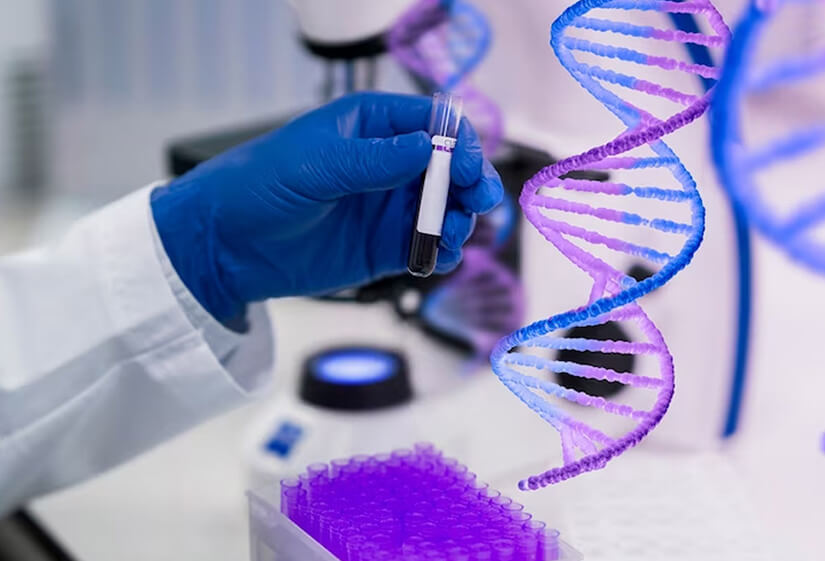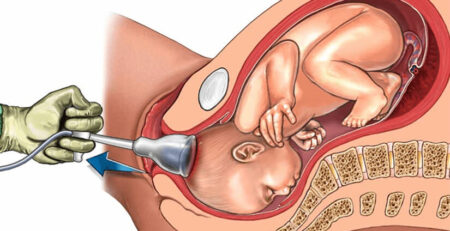Latest Advances in IVF Technology: An Expert’s Perspective
In the ever-changing world of fertility treatments, In Vitro Fertilization (IVF) has become a ray of hope for couples struggling to conceive. Over the years, advances in IVF technology have come a long way, transforming the field of assisted reproductive technology (ART). Recently, we’ve seen some incredible breakthroughs that are making the IVF journey more promising, less intimidating, and a lot more successful. Let’s dive into the latest advances in IVF technology and explore how these innovations are revolutionizing fertility treatments.
1- Preimplantation Genetic Testing (PGT)
One of the most exciting advances in IVF technology is Preimplantation Genetic Testing (PGT). This cutting-edge procedure screens embryos for genetic abnormalities before they’re implanted, ensuring only the healthiest ones are selected. This boosts the chances of a successful pregnancy and lowers the risk of genetic disorders.
Expert Insight
PGT uses advanced molecular techniques to check the chromosomal makeup of embryos. There are two main types: PGT-A (for aneuploidy) and PGT-M (for monogenic diseases). PGT-A looks for chromosomal abnormalities like trisomies and monosomies, which can cause miscarriages and birth defects. PGT-M identifies specific genetic mutations linked to hereditary diseases such as cystic fibrosis or sickle cell anaemia.
The process starts with a biopsy of a few cells from the embryo, usually at the blastocyst stage (day 5-6 of development). These cells are then analyzed using next-generation sequencing (NGS) or array comparative genomic hybridization (aCGH) to detect any genetic issues. This non-invasive approach helps us pick the healthiest embryos for transfer, which has significant outcomes for IVF doctors in Delhi, especially for couples with a history of genetic problems or recurrent miscarriages.
2- Non-Invasive Preimplantation Genetic Testing (niPGT)
An emerging advancement in genetic testing is Non-Invasive Preimplantation Genetic Testing (niPGT). This method offers a less intrusive way to screen embryos by analyzing cell-free DNA from the culture media in which embryos are grown.
Expert Insight
NiPGT allows for the detection of genetic abnormalities without the need for an embryo biopsy. This method involves collecting and analyzing cell-free DNA that embryos release into the culture media. It significantly reduces the risk of harm to the embryo, offering a safer and less invasive alternative while still providing critical genetic information.

3- Time-Lapse Imaging
Time-lapse imaging is another game-changer in the world of IVF technology. It allows embryologists to monitor embryo development in real time without disturbing their growth environment. By capturing thousands of images, time-lapse imaging gives us a complete picture of embryo development, helping doctors choose the most viable embryos for transfer.
Expert Insight
Time-lapse imaging systems like the EmbryoScope have a built-in microscope and camera inside the incubator. This setup continuously records images of the developing embryos, providing detailed insights into their growth patterns and morphology. By analyzing factors like the timing of cell divisions and the symmetry of cell cleavage, embryologists can identify the embryos with the highest implantation potential.
This technology has also led to the creation of morphokinetic algorithms, which predict embryo viability based on developmental milestones. These algorithms help embryologists and IVF doctors in Delhi make informed decisions, reducing the subjectivity associated with traditional embryo assessment methods. Consequently, time-lapse imaging has been shown to improve implantation rates and clinical pregnancy outcomes, making it an invaluable tool in modern IVF practices.
4- Improved Culture Media
Advances in culture media, the solutions used to support embryo development outside the body, have greatly enhanced embryo quality. These improved media formulations better mimic the natural environment of the uterus, providing essential nutrients and growth factors, resulting in healthier embryos and higher implantation success rates.
Expert Insight
The development of sequential culture media has been a pivotal advancement in IVF technology. Traditional single-step media were often insufficient to provide the dynamic nutritional requirements of developing embryos. Sequential media, however, are designed to cater to the specific needs of embryos at different stages of development, from the cleavage stage (day 2-3) to the blastocyst stage (day 5-6).
These media formulations are enriched with amino acids, vitamins, growth factors, and antioxidants that support optimal embryo growth and development. Additionally, advancements in protein-free and defined culture media have minimized the risk of contamination and variability, further enhancing the consistency and reliability of IVF outcomes.
5- Microfluidics and Sperm Selection Methods
Microfluidics and advanced sperm selection methods are revolutionizing the way sperm is chosen for fertilization, ensuring higher quality and more viable embryos.
Expert Insight
Microfluidic devices mimic the natural environment of the female reproductive tract, allowing for the precise selection of the healthiest and most motile sperm. Techniques like magnetic-activated cell sorting (MACS) and microfluidic sperm sorting are becoming increasingly popular. These methods improve the selection process by isolating sperm with the highest DNA integrity, which is crucial for successful fertilization and embryo development.
6- Mild Stimulation Protocols
Mild stimulation protocols are becoming more popular as they offer a gentler approach to ovarian stimulation, reducing the physical and emotional burden on patients.
Expert Insight
Mild stimulation protocols involve the use of lower doses of fertility drugs over a shorter period. This approach aims to produce fewer but higher-quality eggs, minimizing the risk of ovarian hyperstimulation syndrome (OHSS) and making the IVF process more comfortable for patients. These protocols are especially beneficial for women with a low ovarian reserve or those who prefer a less intensive treatment plan.
7- Ovarian Rejuvenation
Ovarian rejuvenation is an emerging technique aimed at enhancing ovarian function and improving fertility outcomes, particularly in women with diminished ovarian reserve.
Expert Insight
Methods like Platelet-Rich Plasma (PRP) therapy and stem cell therapy are being explored for ovarian rejuvenation. PRP involves injecting a concentrated solution of the patient’s platelets into the ovaries to stimulate tissue regeneration and improve egg quality. Stem cell therapy uses the patient’s stem cells to rejuvenate ovarian tissue. These innovative treatments hold promise for extending fertility and improving the chances of conception in women with decreased ovarian function.
8- Cryopreservation Improvements
Cryopreservation, or the freezing of embryos, has seen remarkable improvements in recent years. Vitrification, a rapid freezing technique, has significantly enhanced the survival rates of frozen embryos, allowing couples to store embryos for future use without compromising their viability.
Expert Insight
Vitrification has revolutionized cryopreservation by preventing ice crystal formation, which can damage cellular structures. This technique involves the ultra-rapid cooling of embryos in a high-concentration cryoprotectant solution, transitioning them into a glass-like state. Unlike traditional slow freezing, vitrification ensures a near 100% survival rate upon thawing, maintaining the integrity and viability of the embryos.
The success of vitrification has expanded the possibilities of elective single embryo transfer (eSET), reducing the risk of multiple pregnancies and associated complications. Moreover, it enables the preservation of surplus embryos, offering patients the flexibility of future IVF cycles without the need for repeated ovarian stimulation. This not only reduces physical and emotional stress but also lowers the overall cost of treatment.
9- Personalized Medicine in IVF
Personalized medicine is becoming integral in modern healthcare, and advances in IVF technology are no exception. By tailoring treatment plans to the individual needs of each patient, doctors can optimize the chances of success. Factors such as age, medical history, and genetic background are considered to create a bespoke IVF protocol.
Expert Insight
Personalized IVF protocols involve a comprehensive assessment of the patient’s reproductive health, including hormonal profiles, ovarian reserve, and uterine receptivity. Advanced diagnostic tools such as Anti-Müllerian Hormone (AMH) testing and Antral Follicle Count (AFC) ultrasound provide valuable information about ovarian reserve and predict the response to ovarian stimulation.
Pharmacogenomics, the study of how genes affect a person’s response to drugs, is also playing an increasingly important role in personalized IVF. By analyzing genetic variations that influence drug metabolism, doctors can customize medication dosages to maximize efficacy and minimize side effects. This approach ensures that each patient receives the most effective and efficient treatment possible, enhancing the overall success rates of IVF.
10- Artificial Intelligence in Assisted Reproductive Technology (ART)
Artificial Intelligence (AI) and machine learning are poised to revolutionize advances in IVF technology by enhancing decision-making processes and improving outcomes. AI algorithms can analyze vast amounts of data from previous IVF cycles to identify patterns and predict success rates. Machine learning models can also assist in embryo selection by evaluating morphokinetic data from time-lapse imaging and predicting the likelihood of implantation.
Expert Insight
AI-driven tools such as deep learning neural networks are being developed to assess embryo quality with unprecedented accuracy. These models analyze a combination of morphological and developmental parameters to predict the implantation potential of embryos. Additionally, AI can optimize ovarian stimulation protocols by predicting individual responses to hormone treatments, thereby reducing the risk of ovarian hyperstimulation syndrome (OHSS) and improving egg retrieval outcomes.
11- Lab-on-a-Chip Technologies
Microfluidics and lab-on-a-chip technologies are emerging as innovative tools and latest advancements in IVF, offering precise control over the microenvironment of gametes and embryos. These technologies enable the manipulation of small fluid volumes, mimicking the natural conditions of the female reproductive tract and enhancing fertilization and embryo development.
Expert Insight:
Microfluidic devices are being used to create more physiologically relevant culture systems, providing continuous nutrient supply and waste removal for embryos. These systems can also be integrated with biosensors to monitor embryo metabolism and health in real time. By replicating the in vivo environment more accurately, microfluidic platforms hold the potential to improve embryo quality and increase the success rates of IVF.
12- Mitochondrial Replacement Therapy (MRT)
Mitochondrial Replacement Therapy (MRT), also known as “three-parent IVF,” is a cutting-edge technique designed to prevent the transmission of mitochondrial diseases from mother to child. This involves replacing defective mitochondria in the mother’s egg with healthy mitochondria from a donor egg, ensuring the resulting embryo has healthy mitochondria.
Expert Insight:
MRT techniques, such as Maternal Spindle Transfer (MST) and Pronuclear Transfer (PNT), involve the transfer of nuclear DNA from the patient’s egg or zygote into a donor egg or zygote with healthy mitochondria. This procedure is highly complex and requires precise micromanipulation to ensure the integrity of the nuclear and mitochondrial DNA. Although MRT is still in its early stages, it offers hope for couples at risk of passing on mitochondrial disorders, potentially preventing severe genetic diseases and improving the quality of life for future generations.
Finding the Right IVF Doctor in Delhi
Navigating the complex world of IVF requires expert guidance. Suppose you’re looking for an IVF doctor in Delhi. In that case, it’s important to find a specialist who is not only knowledgeable about the latest advances in IVF technology but also compassionate and supportive. Dr. Rhythm Gupta, an IVF doctor in Delhi and Male Fertility specialist, embodies these qualities. With a commitment to providing personalized care and leveraging cutting-edge technology, Dr. Gupta has helped countless couples achieve their dream of parenthood.
Expert Recommendation
When selecting an IVF doctor in Delhi, consider their experience with advanced technologies such as PGT, time-lapse imaging, and personalized medicine. A reputable specialist should have a proven track record of successful outcomes and a comprehensive understanding of the latest scientific advancements. Additionally, look for a doctor who prioritizes patient-centred care, offering emotional support and clear communication throughout the IVF journey.
Way Forward
Starting on an IVF journey can be overwhelming, but with the right support and expertise, it can also be incredibly rewarding. If you’re considering IVF and want to explore the latest advances in IVF technology, schedule a consultation with Dr. Rhythm Gupta today.
As an esteemed IVF doctor in Delhi, Dr. Gupta is dedicated to helping you navigate this path with confidence and hope. Take the first step towards your dream of parenthood and reach out to Dr. Rhythm Gupta now. Your journey to a brighter future begins here.












